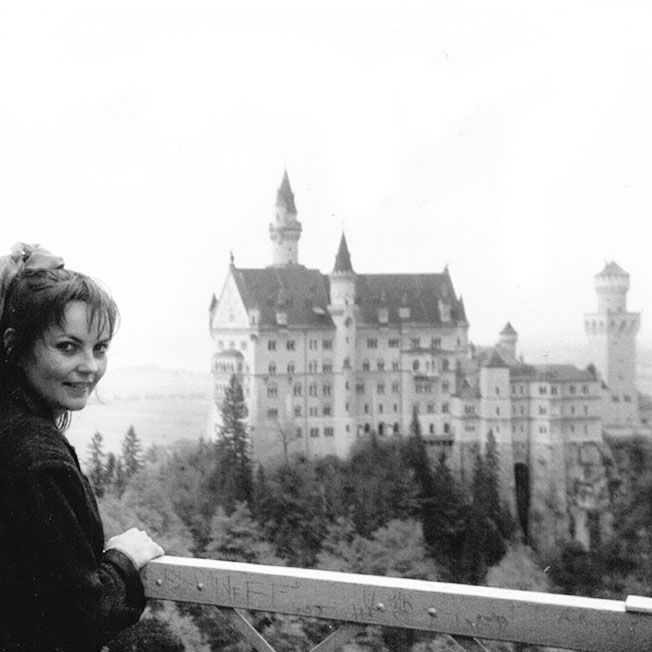
Johanna Arven
Author
I've loved fairy tales since childhood. During the coronavirus lockdown that began in March 2020, almost all appointments and commissions were canceled. So I picked up my unfinished fantasy novel, "PUNJA & TASHI." With Punja, the young Tibetan perfumer, you're immersed in a sensual world of fragrances rarely seen in the media. I'd only written about 30 pages in the last five years; the story was just a vague idea, a wish.
Now, starting in spring 2020, during the coronavirus crisis, I truly immersed myself in the world of the enchanted Tibetan siblings. Suddenly, the pages almost wrote themselves. And more than once, the characters in the novel even surprised me!
The picture shows the author in the early 1990s, after she and her then partner had just moved from Munich to near Neuschwanstein Castle.
The author lives a secluded life in a small hamlet near Neuschwanstein Castle. Contact can be made through the publisher:
beate.nagel (at) art-parfum.de
Johanna Arven discovered Buddhism at the age of 22. For the following years, she was fully integrated into it, meditating and studying within a Tibetan Buddhist school. Then a period began in which she began to rediscover her own roots—the Christianity in which she had grown up—but also the pre-Christian, Nordic cultural influences.
Ethics is more important than religion.
We aren't born as members of a particular religion. But ethics are innate in us. Johanna Arven is concerned with a more secular ethic beyond all religions. Albert Schweitzer called the same concern "reverence for all life."
More essential than religion is our fundamental human spirituality. This is an inherent inclination toward love, kindness, and affection within us as humans—regardless of our religion. Johanna Arven can fully confirm these statements.
community
However, we humans also need community, beyond our familial ties. As free individuals, we either form new forms of togetherness or integrate ourselves into existing structures. Whether these are based on a connection to nature, religion, or some other idealistic orientation, it always revolves around these themes:
- Together we can usually achieve more than one person can.
- However, only if we as individuals do not "completely disappear" in this community (ideology, institutions...).



